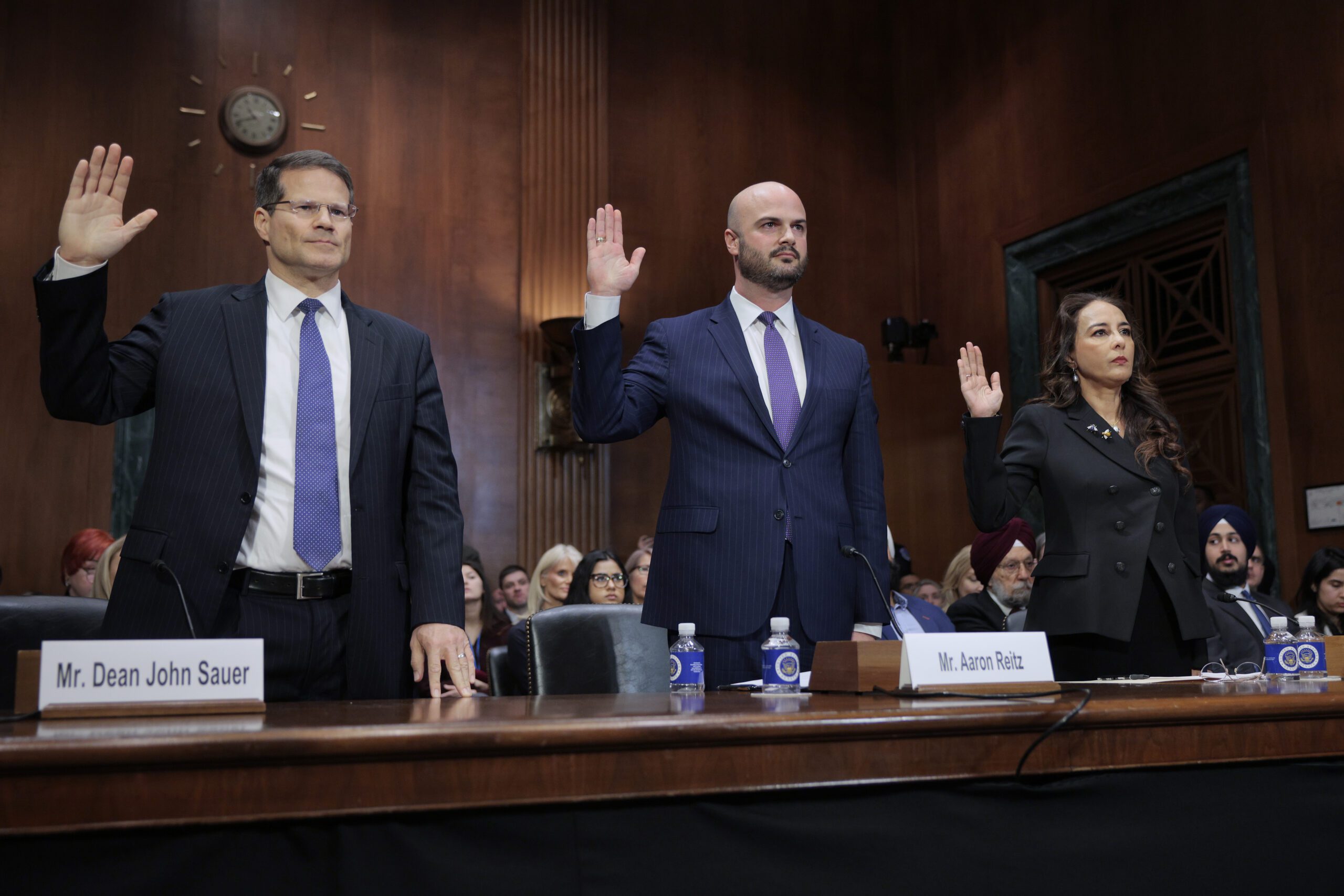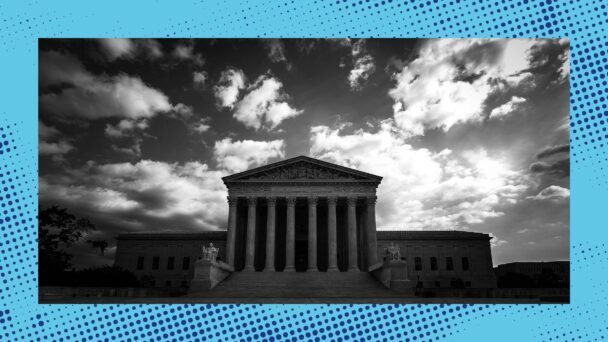Hookworm, a parasite that lives in the small intestine, was thought to be eradicated in most of the United States decades ago. People generally contract the illness by walking on soil contaminated by human feces, so as the nation’s sanitation infrastructure improved, infections plummeted. But those advancements bypassed the residents of Lowndes County, Alabama, a high-poverty, predominantly Black county where fewer than 1 in 5 residents are served by a conventional municipal sewer system. There, over 30 percent of residents test positive for hookworm. Nearly 60 percent say raw sewage is a severe problem in their community, and over 70 percent have had raw sewage come into their homes—sometimes flooding in when it rains, sometimes bubbling up in toilets, sinks, and bathtubs.
In November 2021, the Biden administration opened an investigation into whether the Lowndes County Health Department and the Alabama Department of Public Health were violating Title VI of the Civil Rights Act by discriminating against Black residents in the provision of sanitation access. Around a year and a half later, the Justice Department secured a landmark settlement that put Lowndes County on a path to provide Black residents with basic sanitation services that more affluent white communities have long received. “Today starts a new chapter for Black residents of Lowndes County, Alabama, who have endured health dangers, indignities and racial injustice for far too long,” said Kristen Clarke, who was, at that time, Assistant Attorney General of the Justice Department’s Civil Rights Division.
Earlier this month, the Department of Justice announced that, pursuant to President Donald Trump’s executive order “ending radical and wasteful government DEI programs and preferencing,” it was terminating the settlement immediately. “The DOJ will no longer push ‘environmental justice’ as viewed through a distorting, DEI lens,” said Harmeet K. Dhillon, Clarke’s successor in the Civil Rights Division. “Americans deserve a government committed to serving every individual with dignity and respect, and to expending taxpayer resources in accordance with the national interest, not arbitrary criteria.”
The sanitation crisis in Lowndes County and the Trump administration’s decision to perpetuate that crisis suggest that is not the government Americans have. Consigning Black people to live in filth is incompatible with serving all Americans with “dignity and respect,” unless Black people don’t count as Americans. Underinvesting in critical sanitation infrastructure in Black neighborhoods is irreconcilable with “expending taxpayer resources in accordance with the national interest,” unless the nation is interested in violating Black people’s human rights.
The only part of Dhillon’s claim that withstands scrutiny is the acknowledgement that the government is not acting arbitrarily. Alabama did not neglect the health of Lowndes County’s Black residents by happenstance, and the Department of Justice did not end the sanitation agreement at random. These are the latest discriminatory acts in a long history of discriminatory acts that the Trump administration wants more of in the present.

Harmeet Dhillon, far right, is sworn in at her confirmation hearing before the Senate Judiciary Committee, February 2025 (Photo by Chip Somodevilla/Getty Images)
Alabama law requires residents without access to a public sewer line to buy and maintain their own septic system. But in Lowndes County, the heart of the “Black Belt,” that’s easier said than done. The same dark, dense soil that made the region prime real estate for exploiting enslaved Black people on cotton plantations makes it incompatible with conventional septic tanks: When the tanks drain liquid, the soil doesn’t absorb the wastewater, and raw sewage pools up in yards and homes. While a basic septic system might cost around $3,000, the kind of system necessary to stand up to Black Belt soil can cost up to $70,000. The median household income in Lowndes County is $35,160.
Priced out of conventional septic systems, generations of Lowndes County residents have resorted to “straight piping.” The term refers to a practice where people dig ditches and build their own makeshift piping systems in an attempt to guide human waste away from their homes. This results in raw sewage sitting directly outside in foul-smelling pools, harboring a variety of pathogens and bacteria. Using straight piping is unsafe and, under Alabama state law, a criminal misdemeanor offense, so many people suffer in silence in efforts to avoid drawing attention and incurring legal penalties. Residents have been fined, arrested, and jailed, and have had liens put on their property because they couldn’t purchase the sanitation infrastructure the government didn’t provide.
The Alabama Department of Public Health estimates that somewhere between 40 and 90 percent of households in Lowndes County have inadequate or no wastewater management systems. A United Nations official raised concerns in 2017 that the Department had “no idea” about the severity of the problem, and suggested the Department’s blase attitude could be explained by the region’s demographics. “The great majority of White folks live in the cities, which are well served by government built and maintained sewerage systems, and most of the rural folks in areas like Lowndes County are Black,” said Philip Alston, the UN Special Rapporteur on extreme poverty and human rights at that time. “The problem doesn’t appear on the political or governmental radar screen.”
Since the settlement, which required the departments to suspend enforcement of sanitation laws with criminal penalties and to create a plan to improve access to sanitation, among other reforms, Black residents slowly started to see some improvements. By December 2023, dozens of wastewater systems were installed at homes around the county. By July 2024, the state legislature appropriated $1.5 million to improve the county’s sanitation system, and the Health Department signed a contract to get more systems installed for more residents. And people finally stopped getting arrested when they couldn’t afford a septic system that worked on Black Belt soil.
After the Trump administration terminated the settlement agreement, Alabama’s Health Department said it would continue to install septic systems until already-appropriated funding expires, but did not make clear how much money is left, or when it will run out. People don’t know what to expect, and fear what little progress has been made will be lost. “It took forever for the help to come, and for it to just be cut off like that… I was shocked,” said one resident.
Black people have been fighting for political influence in Lowndes County for decades, and in the face of significant resistance. The county’s reputation for racial terrorism earned it the nickname “Bloody Lowndes,” and civil rights activist Kwame Ture once called it “the most backward and violent county in Alabama.” The Biden administration’s settlement was a small but welcome step towards actually responding to Black residents’ needs. In a press release, the Trump administration celebrated taking “another step” in a very different direction: to “eradicate illegal DEI preferences and environmental justice.”






